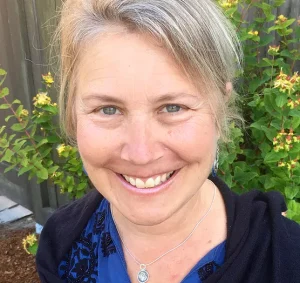Editorial Note:
This profile of Trenton M. Haltom is brought to you through a joint collaboration between Applied Worldwide and Sociologists for Women in Society (SWS). Thank you to SWS and all those who made valuable contributions to the Profiles in Applied & Clinical Sociology series.
This profile is presented as part of a larger project with the intentions of: 1) providing students with examples of applied sociology, 2) providing market value to sociological skills and services, and 3) promoting the work of individual sociological practitioners and organizations. Enjoy our full directory of profiles in applied and clinical sociology.
Trenton M. Haltom, PhD
Trenton M. Haltom began his sociology career at the University of Oklahoma where he earned his BA in Sociology. He continued his journey by earning an MA in Sociology from the University of Houston followed by a PhD in Sociology from the University of Nebraska-Lincoln.
Currently, Dr. Haltom is a Qualitative Methodologist in the Center for Innovations in Quality, Effectiveness and Safety (IQuESt). IQuESt is a combined Baylor College of Medicine Section in the Department of Medicine and a VA Health Systems Research Center of Innovation. In his role as a qualitative methodologist, he is housed in the Methodology and Analytics Core at IQuESt.
You can connect with Dr. Haltom on Twitter and LinkedIn. Continue reading below for the full interview with Dr. Haltom on his applied sociological work!
Using Sociology in Practice
To begin, can you briefly describe the work you do as an applied, clinical, or public sociologist?
In my daily work, I lead the design, data collection, analyses, and dissemination of several different kinds of research: health systems research, informatics, quality improvement, and implementation. I consider this work applied, however, because I am affiliated with a school of medicine, it may also be considered “alt-ac.”
In general, how do you use sociology in practice?
Sociology is useful in my work in thinking about health disparities, inequalities, and the diversity of perspectives which guide my research, quality improvement, and implementation work in health care settings.
How do you use sociological research methods in practice?
My sociological training was grounded in a range of methodological practices in research design, survey design, qualitative methods, mixed-methods, and statistics. In my work, I use most of these! I rely heavily on research design and qualitative methods, however. I mentor, guide, and design research with peers and trainees frequently.
Lessons for Future Practitioners
What types of courses should undergraduate students take in preparation for a career similar to yours?
Research methods (design, statistics, and qualitative methods [if available])—they may be grueling and nasty courses sometimes, but they are skills workplaces need and recognize.
What types of courses should graduate students take in preparation for a career similar to yours?
Research methods (design, statistics, and qualitative methods [if available])—they may be grueling and nasty courses sometimes, but they are skills workplaces need and recognize.
What types of experiences should undergraduate students seek in preparation for a career similar to yours?
Internships, research collaborations with faculty, independent research (e.g., honors thesis), or even informational interviews to determine what kind of work they actually want to do and skills they need to do that work.
What types of experiences should graduate students seek in preparation for a career similar to yours?
Research collaborations with faculty, independent research (beyond the thesis or dissertation), publications, or even informational interviews to determine what kind of work they actually want to do and skills they need to do that work.
What texts or authors can people reference to learn more about the work you do as an applied sociologist?
- Fix, Gemmae M. 2014. Anthropologist and Government Employee: A Description of Career Paths to Becoming an Applied Anthropologist with the U.S. Department of Veteran Affairs. Annals of Anthropological Focus 37.2:20–39.
- Fix , Gemmae, M. and Ann McElroy. 2020. Divergent Paths to Career Fulfillment in Applied Anthropology. Pract Anthropol 42(1):56-64.
- Fix, Gemmae, Aaron Seaman, Linda Nichols, Sarah Ono, Nicholas Rattray, Samantha Solimeo, Heather Schacht Reisinger, and Traci Abraham. 2023. Building a Community of Anthropological Practice: The Case of Anthropologists Working within the United States’ Largest Health System. Human Organization 82(2):169-181.
- McElroy, Ann, Renee Cadzow, Linda S. Kahn, and Gemmae M. Fix. 2020. Introduction to Divergent Pathways in Applied Anthropology Careers. Pract Anthropol 42(1):2-10.
- Webster, Fiona, Denise Gastaldo, Steve Durant, Joan Eakin, Brenda Gladstone, Janet Parsons, Elizabeth Peter, and James Shaw. 2019. Doing Science Differently: A Framework for Assessing the Careers of Qualitative Scholars in the Health Sciences. International Journal of Qualitative Methods 18:1-7.
- Wolgemuth, Jennifer R. and Lorien S. Jordan. 2023. “Will You be Our Qualitative Methodologist?” Reflections on Grant Work Responsibilities. International Journal of Qualitative Research 22(1-10).
More generally, what are the best outlets to learn more about the work you do as an applied sociologist?
LinkedIn and informational interviews with folks who appear to do the work you might be interested in.
How would you describe your daily life as a practicing sociologist?
Balanced.
What advice do you have for aspiring applied, clinical, and public sociologists?
Find work that you like, is fulfilling, and pays you what you’re worth. It may take a few tries and transitions, but you’ll get there.







